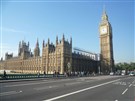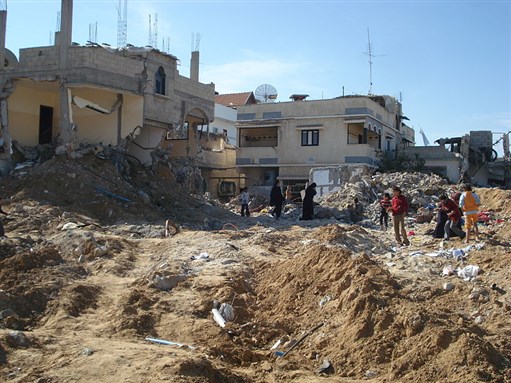Abstract
Standing at a press conference with Turkmenistan’s Deputy Prime Minister Rashid Meredov on January 22, 2013, India’s President Pranab Mukherjee committed India once more to a natural gas pipeline to run from Central Asia to South Asia. “India is deficient in energy resources,” said the President, “whereas Turkmenistan is rich in hydrocarbons.” The economic complementarities are obvious, but not so clear are the political ramifications. The President said that the pipeline is “important for bringing peace and development to our common region,” signaling that such projects are as much about regional stability as they are about resource exchanges.
Talk of this pipeline once more raised the question in New Delhi of the other natural gas project, the Peace Pipeline that was to run from Iran’s South Fars field to India, with access points for Pakistan’s energy needs along the way. A Pakistani engineer, Malik Aftab Ahmed Khan, first proposed this route in the 1950s. Ali Shams Ardekani, the Deputy Foreign Minister of Iran, and Rajendra Pachauri, the director of the Tata Energy Research Institute (TERI) revived the project thirty years later. In 2001, TERI and the Hydrocarbon Development Institute of Pakistan began a study of the techno-economic aspects of the project. The study, Pachauri put it, would be needed to “sensitize opinion makers on the two sides of the border on the opportunities, costs and benefits of the project.”
The pipeline projects that emerged out of considerations of resources came to embody the new regional ties that the governments wished to foster. These were the arteries of energy, no doubt, but also the manifestation of the links that these countries knew had to be promoted. All states in its path would have a vested interest in the pipeline, whose existence might stay the paw of the dogs of war.
Asian regionalism in the 1990s and 2000s was simply just an idea. It had not emerged as a sufficient counter to the other major narrative of international relations, namely US primacy. During the Cold War, the US and the USSR had both attempted to carve out camps of their allies and friends, whose existence was protected by the superpowers’ armaments and personnel. With the collapse of the USSR in the 1980s, a new narrative developed for global security and for US power projections. The US attempted to manage the world through a “hub and spoke” system: the US was the hub, with the spokes being its major client states whose task, in alliance with US troops in a network of overseas bases, was to manage the unruly states on the rim of the tire.4 These client states (Colombia, Israel, Egypt, Rwanda, Georgia, Taiwan, Japan as well as the old settler colonial states of Britain, Australia, New Zealand and Canada) would allow the US access to bases and to its intelligence networks, enabling US power to project itself across the planet. The vision was grand, but it was also infected with hubris.
It is out of the theory of US primacy that the US intervened to undermine the South and Central Asian regional projects of the 1990s and 2000s. In 2005, US Ambassador to India David Mulford wrote to Washington, “New Delhi is trying to support us without alienating Tehran, on whom it depends for current oil supplies, future natural gas imports (pipeline and LNG), and access to Afghanistan and Central Asia.” If the US could guarantee India an alternative source of energy, India could be made to break with Iran and help the US in its strategy for the isolation of Iran. India, a friend of the US but not a client, could become a necessary part of the architecture of US primacy. After all, as Mumford wrote, “India had a key voice in the NAM [Non-Aligned Movement] and could swing opinion in the [International Atomic Energy Agency] Board of Governors; it was time,” Mumford wrote, “for us to know where India stood.”
The US-India nuclear deal that followed was a direct attempt to secure India into the narrative of US primacy and to forgo that of Asian regionalism. It is the reason why India voted twice against Iran in the IAEA, despite the fact that it is India that has a nuclear program (it has twice tested a nuclear weapon, 1974 and 1998, and is not a member of the Nuclear Non-Proliferation Treaty; Iran is a member of the NPT and has not tested a weapon).
India shifted to the side of US primacy in 2004, but since then its foreign policy has shifted once more to the middle. Sitting with a senior Indian diplomat, I mentioned that India seemed to be caught between two stools, US primacy and regionalism. “That’s an apt image,” he said, “except we have not fallen between the stools.” Things are more fraught now, and less clear. Talk of the peace pipeline and of linkages with Iran returned to the agenda after 2004. As US power enters a period of decline as a result of economic trials and two expensive and inconclusive wars, the moment of regionalism seems on the horizon.
[This abstract is part of larger working paper published by the Issam Faris Institute for Public Policy and International Affairs. Click here to download the full working paper.]
![[World map showing Iran and India in green and orange, respectively. Image by Bazonka via Wikimedia Commons]](https://kms.jadaliyya.com/Images/357x383xo/800px-Iran_India_Locator.jpg)

















